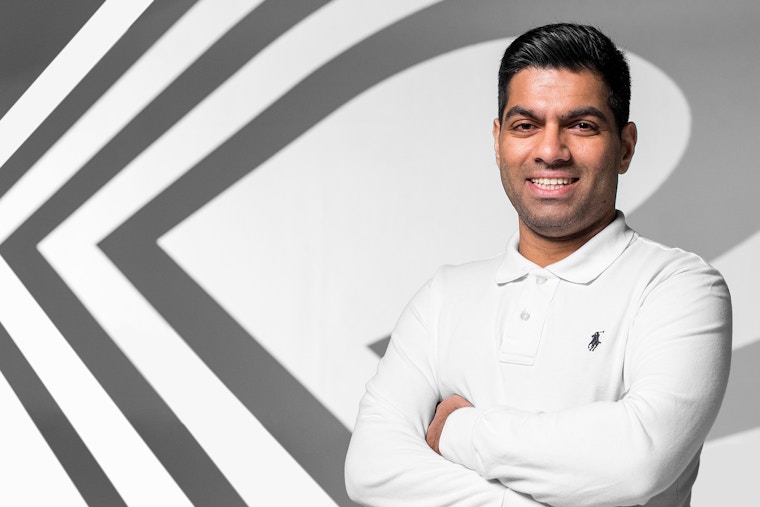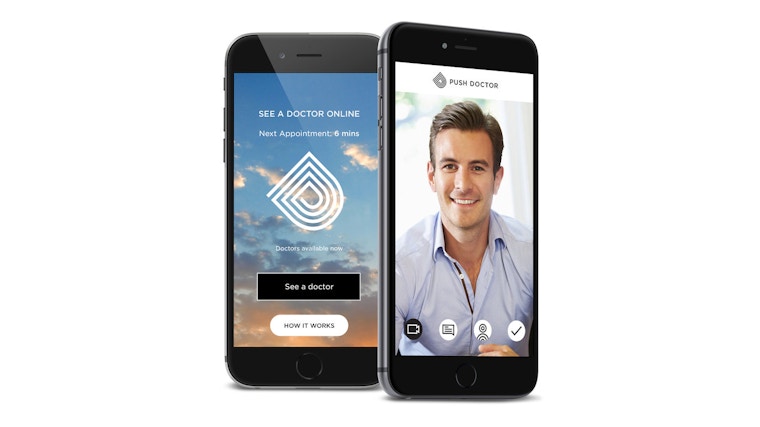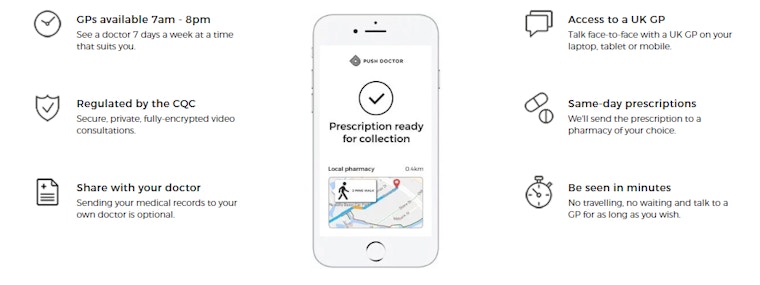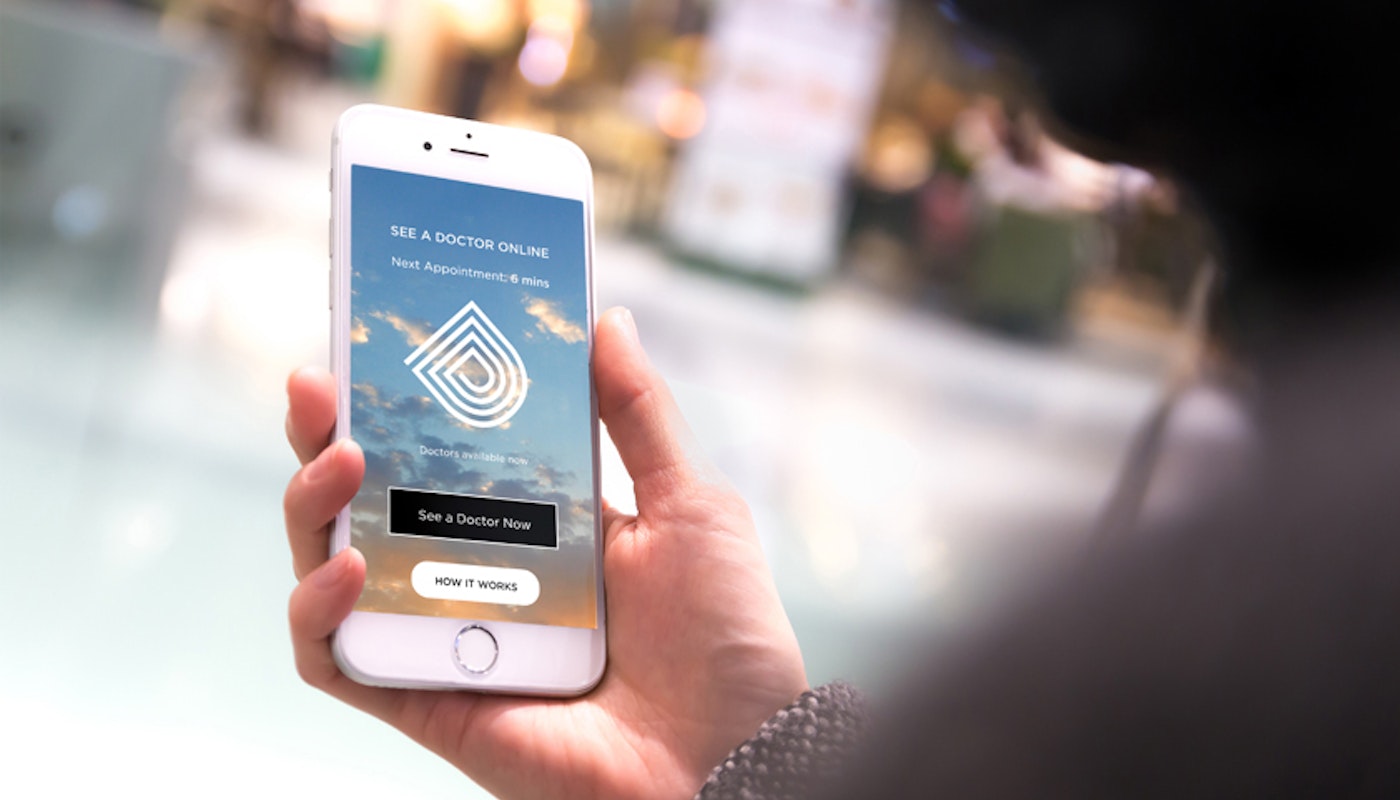
Founder Erin Ozagir came up with the idea after falling ill on a business trip. Confined to his hotel and feeling terrible, the thought struck him – ‘If you could get a taxi, boat and even a helicopter through an app – why, couldn’t you talk to a doctor on your smartphone?’
In this day and age, where an NHS appointment can take up to three weeks wait, it’s all about ‘opening up access.’ Offering a user experience, years in the developing, Push Doctor has veritably pushed back against the idea that the internet and diagnosis don’t mix. Technology offers the solution; a trusted platform where teams of GPs are onboarded via a rigorous thirty day programme of training. ‘Consulting digitally is a new skill,’ Wais says, ‘and it may sound obvious. But if you’re always used to consulting face to face it’s very different.’

The app is all about ‘user experience’ and how to deliver it. Its strengths are that, ‘We have doctors who feel supported in consulting and then secondly we constantly get feedback via the patients using the app.’ He refers to himself as a research loving ‘geek’ (‘There are a lot of things happening around data integration, I love reading about that’) and it’s clear he’s impassioned about bringing the finest medical care to the masses, and in the process alleviating the stress on essential services.
Push Doctor isn’t just a service you can pay for (a single consultation is £30 or you can sign up for the premium service at £20 per month, which has seen a 230% year-on-year increase in the number of people subscribing), it’s also a much lauded partner to the NHS, offering out of practice support to a wide variety of surgeries, with 500,000 current NHS patients currently being treated this way for free. ‘We also work with corporates,’ Wais says, which is all about ‘encouraging well being in the workplace.’ It’s a dynamic, multi level approach incorporating the technology to pick up incorrect diagnoses, making sure there is alignment between the patient’s medical notes and the incoming data from the doctor’s assessment. ‘When the client comes via the NHS, they are completely armed with that knowledge.’ It’s easy to see why the service raised $8.2 million from investors in 2016.

Speaking of a sea change, Push Doctor is part of a broader shift towards prevention rather than cure, getting to the doctor earlier, picking up symptoms as they arrive and crucially removing the greatest barrier to diagnosis; just leaving the house. Specifically useful for men averse to medical professionals, I would venture, especially the portion each year who succumb to testicular cancer; a speedy call from the office and a referral can be made, one that can offer the life saving gift of early diagnosis.
The app has been life saving in other ways; two lives edged back from the brink in 2019 alone; a man with chest pains having a heart attack and a suicidal individual got to in record time, thanks to the red button build into the platform; an emergency link to the ambulance service that the relevant GP can swing into action during the consultation (thanks to access to the patient’s address).
The journey to build this paradigm shifting app has not been without its challenges however, ‘Being an untapped market has been great for us, as it has really allowed us to grow fast, to support physical healthcare. The main challenge has been getting the awareness out and that is what we have been doing for the last five years.’ Earlier work had to be done to balance the fact that many ‘systems within primary care don’t speak to one another. When you get into referrals and secondary care, all of those don’t speak to each other either. The solution we have now is one where all of these come together.’
Of course there are limits to video consultation. If someone needs a physical examination they would still have to attend a surgery in the old school manner, but for the 95% of cases that can be dealt with via video calling, it’s a miraculously time saving solution, particularly for the overworked millennial, or those living in remote areas. ‘We can diagnose thousands of treatments and take that away from the public sector. It really helps them focus on conditions which they really need to focus on.’
So what if you’re a young person who aims to be in Wais’s shoes in future? What advice can he give? ‘There are no stupid questions,’ he laughs, ‘keep asking, asking, asking. To this day I probably ask some of the stupidest questions. Grow and have that skill set.’
His mentors are close work contacts, ‘We have a fantastic board including Suzanne Given,’ Wais says. ‘Klaus Nyengaard, the ex CEO of Just Eat, he’s a great person to bounce ideas off. They’re the network I like to get advice from, whom I truly respect.’
‘I don’t want to sound cheesy,’ Wais says. ‘But digital health is very rewarding.’ The highlight of his day however ‘is when I see my children. I always make sure between six to eight p.m., I put them to bed. That gives me the two hours I need to get my mind off everything.’ After that he’s back at his virtual desk, ‘There is so much demand for this right now,’ he says with justified confidence, a confidence he has translated to his app, ’pushing’ doctors out into the world, and in the process breaking down the boundaries of the healthcare space.
If you like this, read on:
Best Sites for Health & Fitness
Push Doctor
Tribes: Mums
February 2019

